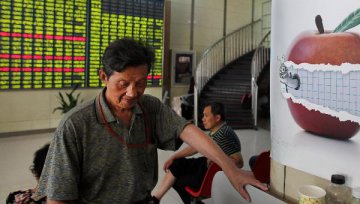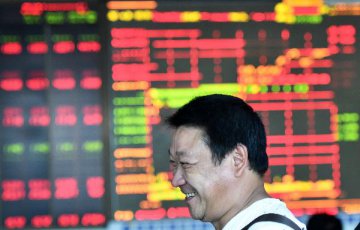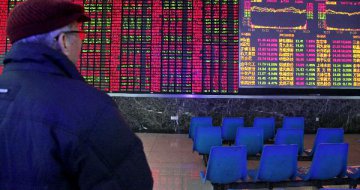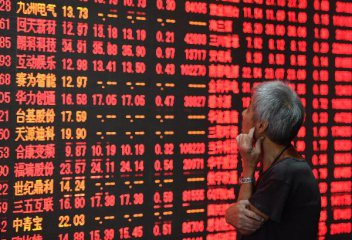
So-called “profit models” in the past, such as great push to individual stocks by idle funds from Wenzhou’s business people, speculation over sub-new stocks and stocks proposing high share conversion and dividend, and the control of small-cap stocks by idle funds, now gradually no longer work under strong supervision in the A-share market.
Aiming at recent tricks played by substantial shareholders and actual controllers of listed companies, some institutions, and investors with strong capital strength, the regulators rolled out a string of policies to strike at the root of the evil. Institutional insiders interviewed by journalist of the Securities Times remarked that the ecology of the A-share market is experiencing profound changes. In one word, game rules in the A-share market have changed, and various speculative behaviors will no longer work.
High-handed supervision not an improvised makeshift
Aiming at past common speculation of sub-new stocks, the China Securities Regulatory Commission (CSRC) claimed on April 14 that the second round of special law enforcement actions targets at hostile market manipulations like speculation of sub-new stocks, and 16 cases will be investigated. In addition, frontline supervision institutions like the Shanghai Stock Exchange (SSE) have taken moves to tackle abnormal trading. Past common speculative behaviors in the A-share market seem to have rejuvenated and might even stage a comeback. The regulators’ supervision over accounts with abnormal trading eyes on the so-called idle funds represented by capital from Wenzhou’s business people.
Since the decision to set up the Xiongan New Area is described as “a strategy crucial for a millennium to come”, stocks related to the new area rose sharply at the announcement of the policy. Past experience suggests that it is not at all surprising to see that prices of relevant stocks are doubled or climb even higher in very short time. But under strong supervision, trading of stocks related to the new area is widely suspended for inspection.
Liu Shiyu, head of the CSRC, indicated on the second session of the Membership Representative Conference of the China Association for Public Companies held on April 8 that “a 30-for-10 conversion of capital surplus into shares is rarely seen in the world and key supervision about it must be carried out”. The index concerning stocks proposing high share conversion and dividend plunged 3.97 percent in the first trading day after Liu’s statement. In the meantime, the regulators also clamped down hard on recurring reorganization problems. A decline to the daily limit of 10 percent is widely seen among sub-new stocks and stocks proposing high share conversion and dividend. Even for the “flash crash” of stocks like Ping An Insurance (Group) Company of China, Ltd. (601318.SH) and Industrial Bank Co., Ltd. (601166.SH) during trading hours, the regulators will also strive to reveal the whole truth behind, and resolutely crack down violations of laws and regulations amid trading.
Besides frequent moves taken by the CSRC, the China Banking Regulatory Commission (CBRC) is also quite active. The CBRC first rolled out the guiding opinions for the prevention and control of risks in the banking industry, and proposed requirements for the prevention and control of risks in 10 areas. Then, the CBRC released the notice about practically improving the weakness and effectiveness of supervision on April 12, requiring more efforts made in curbing risks at the source and stepping up punishment.
The central bank convened the 2017 financial stability work conference, requiring to get a clearer picture of risks and crack down financial chaos.
The core intention of this round of financial supervision is nothing else than stepping up financial supervision, preventing financial risks, curbing asset bubbles and striking illegal trading. In addition, such high-handed supervision is anything but an improvised makeshift. It aims at laying a solid foundation for healthy development of the A-share market, striking at the root of the evil, and guiding finance to better serve the development of real economy in the long run.
Game rules in the A-share market have changed
According to an investment director with a private fund worth 10 billion yuan, profit models of the A-share market are always closely related to policies. A common evidence is that stocks engaged in any industries whose development is encouraged and supported by the government will see sound rise. The regulators’ efforts in striking speculation of sub-new stocks and stocks proposing high share conversion and dividend actually aim at striking hostile underweighting, illegal profit-making, and insider trading and tunneling of benefit in various forms in the A-share market. Profit models of the A-share market are experiencing profound changes.
Firstly, liquidity of many middle- and small-capped stocks in the A-share market will greatly worsen under high-handed supervision in the short run, especially that some stocks listed on the Small and Medium Enterprise (SME) Board and the ChiNext Board with high valuation but poor expectation on performance growth will no longer be favored by mainstream capital. The whole market of stocks listed on the SME Board and the ChiNext Board will then be affected. Volatility and liquidity of these stocks will decrease, and disguised growth stocks will completely show their true color.
Secondly, stocks related to so-called concept of shell resources will be abandoned by the market too. Any speculation of these stocks will be punished by the regulators. Stocks marked with “special treatment” will no longer be hoarded for enormous profit.
Thirdly, short-term funds focusing on speculation of concepts and themes will find it quite hard to adapt to the new market. Past profit models of short-term idle funds will gradually no longer work.
Fourthly, mainstream institutional investors like fund companies will gradually show more interest in real value stocks and growth stocks. Fund companies will further step up their risk control over stocks listed on the SME Board and the ChiNext Board.
Fifthly, the A-share market will be become more similar with the Hong Kong stock market, and trouble makers like idle funds from Wenzhou’s business people will come to no good end. Value stocks like Ping An Insurance (Group) Company of China and Industrial Bank will rise again after “flash crash”, but disguised value stocks and growth stocks will not rebound after drop. In other words, you might have no possibility to recover your loss if you hold disguised value stocks and growth stocks. True value stocks and growth stocks will be favored by the market, while junk stocks, just like “penny stocks” in Hong Kong, will see their stock prices decreased rather low.
Investment atmosphere in the A-share market will be clarified, value investment will be preferred, and blue-chip stocks supported by real performance and true growth stocks will be favored by investors. Stock prices of listed companies in secondary market will be more closely connected with operation performance. The profit gained by investors from the secondary market will more come from real performance growth and dividends of listed companies, but not from the so-called “capital operation”. For investors, “research on the creation of value” will be proved. The structure of investors in the A-share market will change too. Institutional investors with R&D strength will gradually expand, while the ratio of retail investors will gradually decrease.
Translated by Jennifer Lu























Latest comments